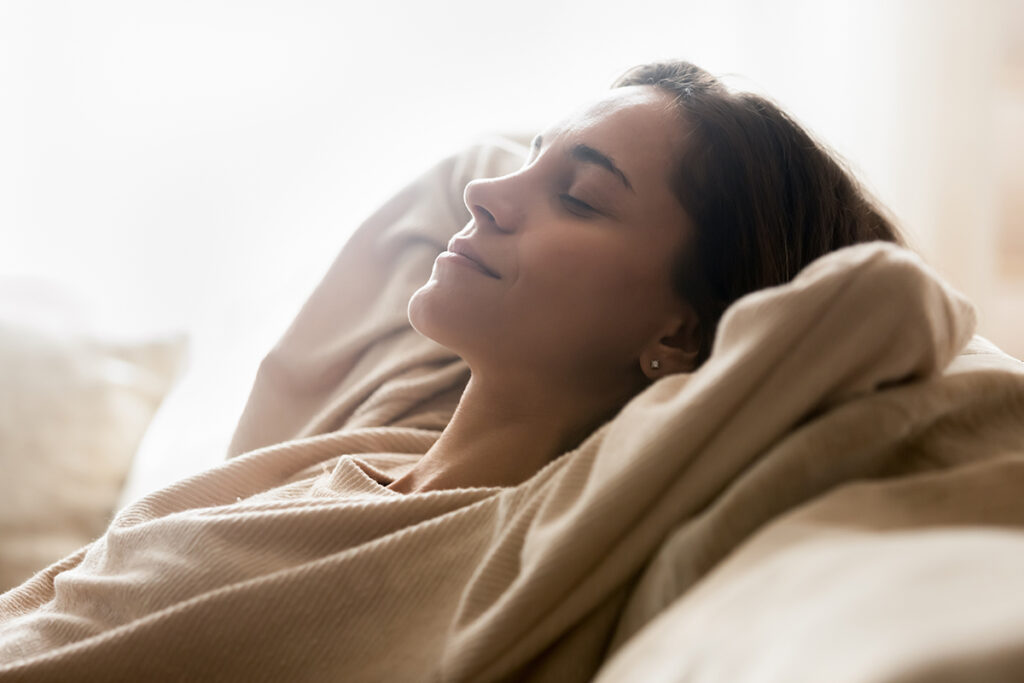The realities of the coronavirus crisis have brought all-time high stress levels, as we struggle to cope with an uncertain environment while keeping ourselves, our families and our communities healthy. Most people are also spending more time at home than ever before. While home is a refuge for many of us, it can be uninspiring when your view changes so rarely.
Heading off to a refreshing vacation may not be in the cards for a long time, but that doesn’t mean you can’t create a healing retreat for yourself and find your spirituality during COVID-19.
Self-Care During Coronavirus
Many of us are struggling with chronic stress during this pandemic, and if that has started to take a toll on your mental and physical health, you’re not alone. Our brains and bodies didn’t evolve to handle the constant barrage of anxiety we’ve had to face over the last few months. And, because of the outbreak, you may not feel safe doing your usual coping activities, such as participating in a group fitness class or meeting friends for lunch.
If you’ve lost touch with your spirituality during COVID-19, consider some new ideas for looking after your well-being without leaving the house.
1. Plan a Mental Health Day
If you’ve been working from home for the past several months, you’ve probably realized how easy it is for the lines between your work and home lives to become blurred. It might have even started to feel like your work responsibilities live with you, since you no longer have a commute or other physical separation between yourself and your job. Still, that doesn’t mean you can’t take a day off.
If the idea of reserving a day strictly to focus on your mental health and spirituality during COVID-19 seems selfish, think about it this way: If you don’t make time for your mental health now, running yourself down will eventually force you to take time off down the road. Communicate to any co-workers ahead of time when your day off is going to be, and make sure they know you will not be logging in or responding to emails. The goal of your mental health day is to relax, unplug and unwind.
2. Meditate Every Day
If you haven’t already been meditating, the coronavirus crisis is an excellent opportunity to get started. Regular meditation can help improve your mind-body connection, while providing an all-natural outlet for stress relief. With practice, meditation will keep you more grounded in the present and alleviate anxiety you might have about what lies ahead during this pandemic.
3. Do a “Digital Detox”
Many of us have become so used to the convenience of having a smartphone that we thoughtlessly reach for our devices whenever we have a free moment. They’re often the last thing we look at before falling asleep, and the first thing we see when we wake up in the morning. Habitual phone use is the opposite of mindfulness. You can’t hope to relax and connect with your spirituality during COVID-19 if you feel the constant need to respond to emails and texts, check for breaking news and interact with your phone every time it pings or vibrates. Designate a period to do a “digital detox,” when you focus solely on real-world interactions and avoid online distractions.
The Value of Spirituality During COVID-19
Self-isolation has led many of us to look inward and reevaluate how we spend our time, so intentionally setting aside a day or two to take care of yourself can help you recharge your mental batteries. Amid the ups and downs of COVID-19, concentrate on what brings joy to your life. And, if you need to seek long-term addiction recovery during coronavirus, Canyon Crossing is here for you. For more information about what makes us unique, contact us today.



